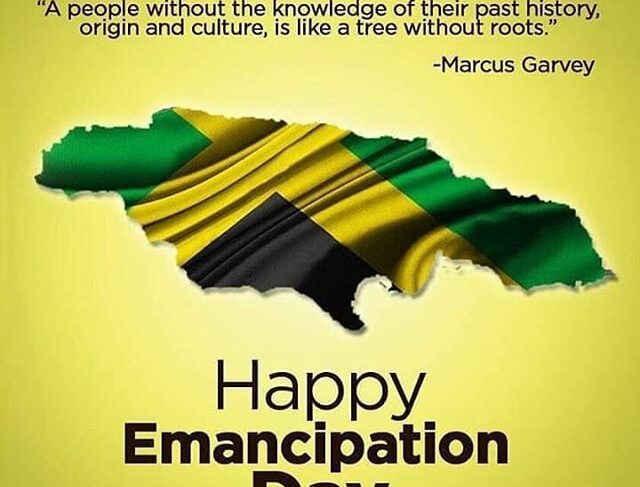Nationalism is a hell of a thing. It has led to wars, revolutions, and acts of insanity. Nationalism was the defining characteristic of the 19th century, and the early half of the 20th century showed us what nationalism, if left unchecked, could lead to.
As a result, or rather this was the reason given, the second half of the 20th century was dedicated to regionalism and internationalism. We got the UN, ECC (EU), AOU (AU), CARICOM etc, all of which are dedicated to ensuring that petty nationalism is put aside and that a spirit of international fraternity reigns supreme.
This has led many noted individuals to decry nationalism of all stripes, to lump them all into one bracket and condemn them all as retrograde people at best or idiots who are opening the door to fascists at worst. We are inundated with this information, and with reason, from the first world. We are told that the only hope we have is to hitch a ride, on their terms of course, and integrate into this brave new world.
Such ideas and talking points are silly and on the face of it patently false. However, they hold great sway and, as a result, the idea must be looked at and dissected so we can get to the truth. So, here is the question:“Is nationalism in all instances bad, are third world and first world nationalism comparable and are they both equally bad?
First, a definition of the term we are discussing. Nationalism can be defined as “Identification with one’s own nation and support for its interests, especially to the exclusion or detriment of the interests of other nations”, or “Advocacy of or support for the political independence of a particular nation or people”. In these two definitions we can see why the first world have sought to move towards an international world and why, at the same time, they decry such feelings and sentiments such as nationalism in the third world.
Nationalism in the hands of the first world devolves to a thing which all people of Africa, Asia, and the Americas know all too well. Jingoism, imperialism, resource extraction, racism and world war are the only things nationalism has to offer when in the hands of those in the first world. We in the third world who are celebrating at most 80 years of independence in this decade have the scars, both physical and structural, to show why those in the first world should avoid the very thought and mention of nationalism.
The decimation of cultures, languages, religions and whole peoples in the name of king, president, God and country, or for the advancement of some ‘national race’ is proof positive that nationalism is something which the first world long ago outgrew and needs to rid itself of.
But what does this idea mean in the hands of the third world, the colonised and exploited masses who then, as now, make up the bulk of mankind? Such an idea and mentality can only mean true independence as it requires throwing off the yoke of the oppressors and truly forging your own national path. In the context of the early to late 20th century it meant the right to self-determination, as seen in Zimbabwe, Grenada, and East Timor, but now we see where third world nationalism in the 21st century means economic and food independence. We see where this nationalism means control over national resources and ensuring that exploitation is brought down or totally eliminated. And it is for these reasons that nationalism in the third world is decried and why all nationalistic leaders are called communists, even if they are only off-pink or a washed-out lavender in their ideology.
The examples are numerous and can be seen in Honduras, Bolivia, Peru, and Brazil. These countries, in the recent past, have fallen victim to imperialism and have seen their leaders who, though engaging with them on nationalistic terms, were forced out at the barrel of a gun or through lawfare in the case of Brazil. They did this not because they were not welcome, rather they ousted these leaders and governments in order to send a message that third world nationalism will be crushed if they have anything to say about it. It must be noted that Venezuela, Nicaragua, and Cuba have managed to maintain a stance of third-world nationalism and the results must be celebrated and their longevity studied.
Third world nationalism spells the death of the neo-colonial empire which has dominated our lives for every waking moment since independence was attained. This would spell the end to the uber profits which are derived from the third world and would seriously eat away at the heavily subsidised lifestyle which is currently enjoyed in the first world nations, covered by the low and often starvation wages paid to third world labourers picking fruit or making articles of clothing.
It would mean they have to face the one thing they truly fear —a world of actual free trade among members who are equal in their right to accept and refuse said trade. Such things, they believe, must be stopped at all costs. Such acts of independence in modern times and in the 20th century have led to regionalism as seen with the African Union and CARICOM and even internationalism when we look at the Non Aligned Movement (the largest international body apart from the UN).
This shows the inherent difference between third world nationalism and its first world ‘counterpart’; one is aimed at liberation and unity in development and against imperialism, while the other is geared towards jingoism and the perpetuation of imperialism in its modern incarnation.
Rather than less nationalism in the third world, I posit that we need more of it. More people in power and out of power who are thinking about the betterment of their nation rather than about lining out some fantasy in the first world. We need people who are willing to make the tough nationalistic decisions which mean giving priority to our medium- to long-term development rather than filling the pockets of industries and sectors which are liable to collapse once the international market loses interest. This is the nationalism which we see in Cuba, Russia, Venezuela, Iran and so many more countries.
These nations, all of them, have differing modes of economy and rule, some are theocratic and capitalist, others are democracies with a thriving capitalist sector and a strong state sector, some have only a strong state sector and limited space for private capital. All of these nations, however, have realised that in order to maintain their national agenda, maintain their nationalism and ensure that they do not return to the status of a colony, the third world must be in union and have bandied together, embracing internationalism. This is the end of imperialism, unity of the third world, the end of empires, their destruction comes from national struggle and liberation (see Africa, India etc). Finance capital and its empire will only be destroyed through the nationalism which expels it and unites with like-minded nations to ensure that it can never return.
The inherent differences between third word nationalism and first world nationalism are simple. One seeks to exploit and divide the world while the other seeks to emancipate itself and build a united world. One is positive in its outlook and its actions while the other is negative and is always seen both at home and abroad as a retrograde step.
Third world nationalism and all it entails — third-world internationalism — was and remains the only way forward. We must pay no attention to those who bad mouth nationalism in the third world and we must stay the course. Only then will true independence and internationalism be seen.



